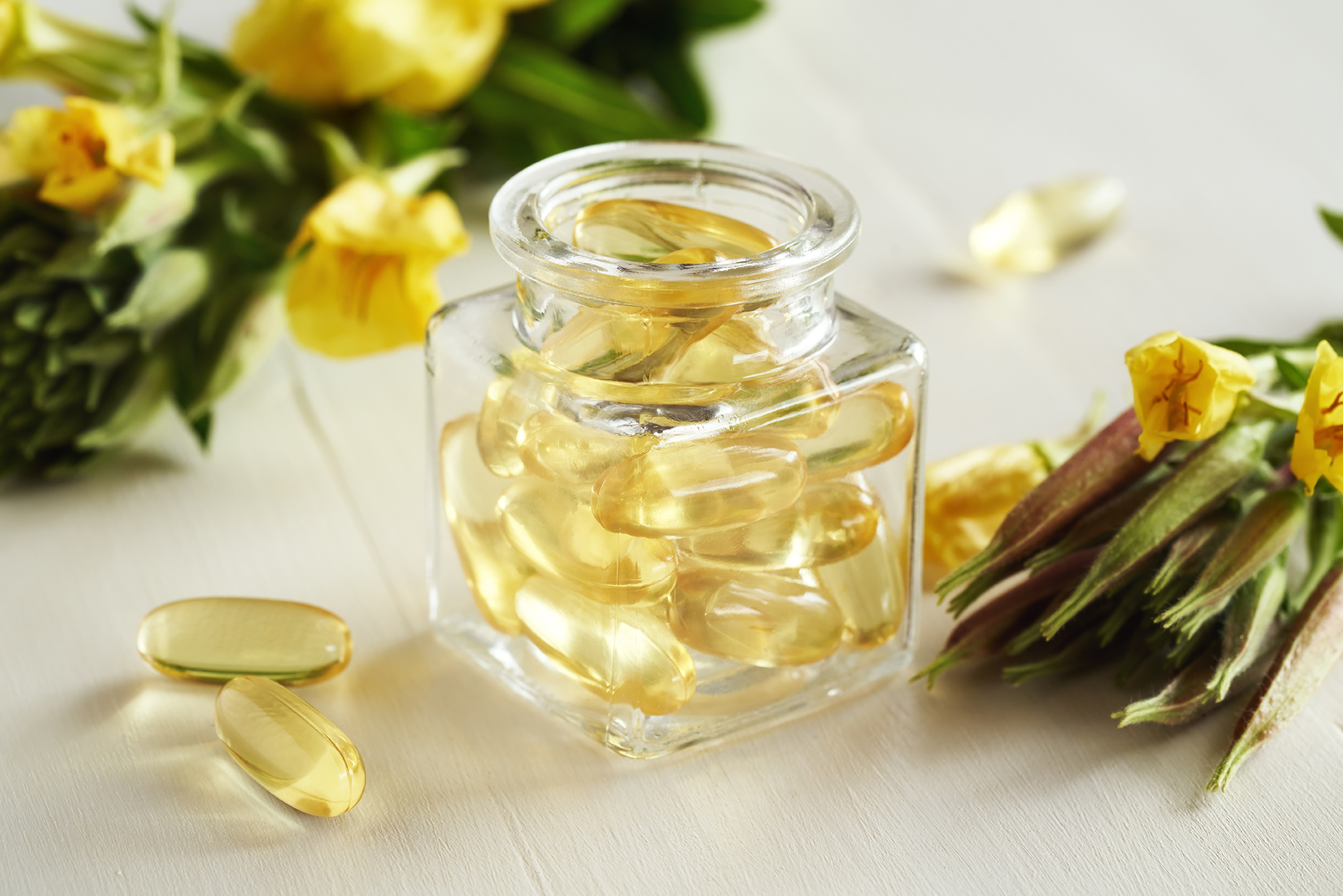Evening primrose and starflower oils (GLAs) are sometimes recommended to relieve PMS symptoms and breast tenderness but can they help with menopause symptoms?
Gamma linolenic acid (GLA) is an omega-6 fatty acid that is primarily found in plant-seed oils including evening primrose, starflower (also known as borage), blackcurrant and hemp. These plant seed oils are available individually or are available in blends and come in tablet, capsule or liquid formats.
GLA has anti-inflammatory, immunomodulatory and cardiovascular protective effects [1], and is marketed to improve skin conditions, rheumatoid arthritis, relieve PMS and menopause symptoms and fight inflammation.
How do evening primrose and starflower oils work?
GLA improves cellular stress and helps your body respond to inflammation.
Evening primrose oil is thought to relieve premenstrual syndrome (PMS) symptoms by increasing the production of anti-inflammatory prostaglandins to ease muscle cramps and bloating [1].
Similarly, during menopause, it’s thought that evening primrose and other GLAs may reduce hot flushes, breast pain, inflammation, and muscle and joint pain, although it’s not clear exactly how evening primrose oil alleviates hot flushes.
How effective is GLA?
While evidence is mixed, a review of clinical studies concerning evening primrose oil in women’s health conditions has shown its therapeutic potential for PMS, hot flushes and gestational diabetes [2].
Among 10 clinical studies on mastalgia (breast pain), seven showed the priority of evening primrose oil over other treatments [2].
There are limited studies regarding GLA and menopause symptoms - more studies are available on its application for managing conditions such as diabetic neuropathy, rheumatoid arthritis, and atopic dermatitis.
What are the side effects?
GLA is generally well tolerated and any reported side effects – such as headache, nausea, diarrhoea, acid reflux and bloating – are usually mild.
Who can take evening primrose and starflower oils?
You should not take GLA if you have a seizure disorder such as epilepsy, a bleeding disorder or if you’re having surgery.
It should not be taken during pregnancy.
What’s the bottom line?
The most effective evidence-based treatment for perimenopausal and menopausal symptoms is HRT because it targets the underlying cause – low hormones. Also, HRT is bone, heart and neuro-protective, and reduces all-cause mortality by 30% [3].
Any herbal supplement should be chosen with care – they are not tested and regulated in the same way as medications and the purity and quality of ingredients can’t be guaranteed.
Note that it can take some time to feel results from evening primrose oil and other GLAs so you may need to use it regularly (up to four months) to feel any potential benefits [2].













